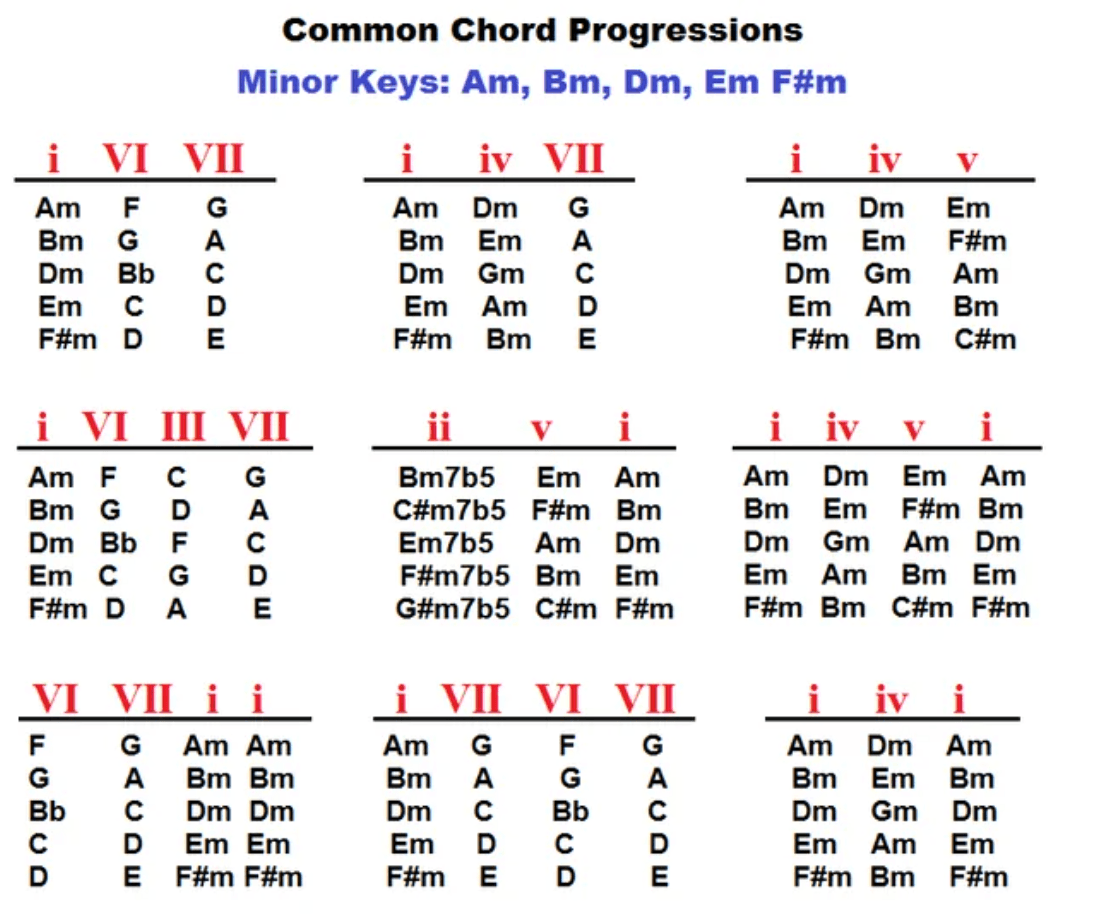Is the future of the music industry int 2024 all about AI music tools?
These innovative gems have been quietly revolutionizing the music industry, blending technology with creativity to open new horizons for musicians and producers alike.
Let's uncover these hidden jewels of AI technology and explore how they are subtly yet profoundly reshaping the way music is crafted and experienced!

Exploring the Uncharted: AI's Emerging Role in Music Creation
In 2024, the music industry is witnessing a quiet revolution, fueled by the rise of underrated AI music tools.
These tools, often overshadowed by mainstream technology, are the landscape of modern music production.
From generating complex melodies to enhancing audio production, they are redefining the boundaries of creativity and technical prowess.
1. Empress AIO: Crafting the Blueprint of Your Music
Empress AIO (All In One) a gem in the world of AI music tools, blends AI sophistication with the art of music composition.
It's an all-in-one platform that transforms musical ideas into structured compositions.
-How it works:
Musicians start by inputting a desired theme or style, like a soulful ballad or an energetic dance track.
Empress AIO then weaves this input into a detailed musical structure, laying out chords, melodies, and even lyrical directions.
For instance, input 'energetic electronica', and Empress AIO might produce a vibrant electronic melody, setting the stage for a high-energy track.
Choose 'soothing classical', and expect a composition with serene strings and harmonious arrangements.
-Adaptive Creativity:
Empress AIO's intelligent algorithms also suggest creative variations, adapting to the evolving nature of the musical piece.
This adaptability is invaluable for artists, offering a blend of structure and creative freedom to explore different musical directions.
2. Mubert: The AI Music Innovator
Mubert stands out in the 2024 AI music landscape as a remarkable AI-powered platform, revered for its ability to generate unique music tracks tailored to a diverse array of applications.
-How Mubert Works:
Mubert harnesses complex algorithms to produce original tunes, resonating with the specific needs of developers, brands, and artists.
Whether it's creating atmospheric soundtracks for apps, engaging scores for games, or any other audio-visual content, Mubert delivers music that aligns seamlessly with the project's mood and theme.
-The Art of Creating with Mubert:
Users can guide Mubert by specifying their preferences, and the platform's generative streaming app takes over, crafting music that captures the intended vibe.
The beauty of Mubert lies in its ability to generate a broad spectrum of music across various genres, making it a versatile tool for content creators.
This feature ensures that every piece of music produced is not only unique but also perfectly attuned to the user's creative vision.
3. Voicify: The New Frontier in Vocal Transformation
Voicify is redefining the way vocal tracks are handled in music production.
This AI-powered tool offers high-quality transformations that can drastically alter vocals.
From mimicking the tone and style of famous artists to refining your own vocal tracks, Voicify's capabilities are expansive.
-How it works:
Voicify operates by utilizing advanced AI algorithms to transform and manipulate vocal tracks.
Users can input a vocal recording, and Voicify then applies its AI technology to modify or emulate the voice, offering a range of effects from mimicking well-known artists to creating entirely new vocal styles.
This innovative tool allows for significant customization, enabling users to experiment with various vocal effects and transform their music with unique vocal elements.
-Custom Voice Modeling: A Creative Playground
The most striking feature of Voicify is its ability to create bespoke voice models. This functionality opens up a world of creativity, allowing musicians and producers to experiment with an array of vocal effects and styles.
Imagine crafting a track where the vocals shift from a deep, soulful tone to a higher, ethereal pitch – Voicify makes this possible.
4. Synplant by Sonic Charge: AI-Powered Sound Replication
Synplant stands out in the field of sound design with its advanced AI capabilities. This tool is about recreating them with precision.
For sound designers and producers, Synplant is a breakthrough, significantly cutting down the time needed to match specific audio qualities in music production.
-How it works:
Synplant by Sonic Charge operates as a sound design tool that leverages AI to replicate and generate audio textures and tones.
It works by allowing users to input a desired sound or texture, after which the AI algorithm analyzes and replicates it with high fidelity.
This process significantly reduces the time and effort needed in traditional sound design, enabling users to quickly match specific audio qualities or create new sounds.
Synplant is especially useful for musicians and producers seeking to experiment with unique sounds or replicate complex audio elements in their compositions.
-Instant Sound Matching:
The key feature of Synplant is its ability to instantly replicate complex sounds.
Whether it's emulating the iconic synthesizer rhythm from a famous track or crafting unique soundscapes, Synplant handles these tasks effortlessly.
This rapid replication capability is particularly useful for those working under tight deadlines or seeking to experiment with various auditory textures in their compositions.
-A Tool for Creative Exploration:
Synplant’s AI-driven technology opens up new avenues for creative exploration in sound design.
Producers and musicians can use Synplant to experiment with a wide range of sounds, pushing the boundaries of traditional sound design and discovering new sonic possibilities.
5. Zotope's Suite: Mastering the Art of Audio Production
iZotope’s suite, encompassing Neutron, Nectar, and Ozone, represents a triumvirate of AI-powered audio production tools.
Each component serves a specific purpose: Neutron excels in mixing, Nectar enhances vocals, and Ozone is the final touch for mastering.
This suite is designed to cater to both novice and experienced producers, offering an intuitive approach to complex audio processes.
-How it works:
iZotope's Suite, comprising tools like Neutron, Nectar, and Ozone, harnesses AI technology to enhance various aspects of audio production.
Neutron is used for intelligent mixing, analyzing tracks to suggest improvements.
Nectar enhances vocal tracks with its AI-driven vocal processing capabilities.
Ozone, designed for mastering, utilizes AI to polish and finalize tracks.
The suite's AI algorithms analyze audio data, providing suggestions and automated adjustments to improve the overall sound quality, making it a versatile and essential toolkit for both novice and professional producers seeking precision and efficiency in their audio projects.
-Streamlining the Production Process:
The suite's AI capabilities ensure precision and control, key factors in high-quality audio production. For instance, Neutron can intelligently suggest mixing tweaks, while Nectar offers vocal processing options that adapt to the track's style. Ozone, in its mastering role, ensures the final output is polished and consistent.
-Ideal for Varied Skill Levels:
What makes iZotope’s suite stand out is its accessibility to all levels of producers.
Those new to audio production can rely on its AI-guided suggestions for professional-grade results, while seasoned producers can delve into more advanced features for fine-tuning their tracks.

The Mechanics of AI in Music: A Technical Insight
From its early days of interpreting basic music theory to the advanced use of machine learning and neural networks, this exploration uncovers how AI has evolved to become a pivotal tool in modern music production.
Let's unravel the technicalities of AI music generation and its transformative impact on the creative process.
The Early Stages: AI's Foray into Music
The inception of AI in music can be traced back to its ability to understand basic music theory.
Initial systems were rudimentary, focusing on replicating patterns in classical compositions.
These early versions laid the groundwork for what would become a more complex integration of AI in music.
Evolution: Machine Learning and Neural Networks
The real leap in AI music generation came with advancements in machine learning and neural networks.
These technologies enabled AI to analyze extensive datasets of various music genres, understanding intricate patterns and structures.
This analysis is not just about mimicking existing music but also about finding new ways to create original compositions.
Deep Learning: Pushing Creative Boundaries
Deep learning, a subset of machine learning, has been pivotal in advancing AI music generation.
It allows AI systems to create music by processing and learning from large amounts of data, leading to the generation of music that is not only technically sound but also creatively rich.
This includes the ability to innovate within genres or even create entirely new ones.
The Process of Music Generation
In the realm of AI generative music, the initial step involves training AI systems on a wide variety of music.
This phase is critical as it enables the AI to absorb and learn from numerous genres and styles, establishing a comprehensive base for music composition.
The AI assimilates patterns, rhythms, and structures that are prevalent across different types of music, forming an understanding of what constitutes harmonious and appealing compositions.
Tools and Technologies
The field of AI music generation has given rise to numerous tools and technologies.
Prominent examples in this field include generative models like Google's Magenta, created with TensorFlow, and OpenAI's Jukebox. These platforms make use of several AI strategies, particularly generative adversarial networks (GANs) and transformers, to name a few.
They are designed to analyze existing musical compositions and generate new works that either mimic certain styles or create completely original pieces.
An important aspect of these tools is the allowance for user input and customization.
Musicians and composers can interact with these AI systems, guiding and influencing the creative process.
This collaborative approach enables artists to specify certain elements they want in the music, such as genre, tempo, or mood, allowing the AI to generate music that aligns with their specific preferences or project requirements.
Case Study: "Daddy's Car" by Flow Machines
A prime example of AI's capabilities in music generation is the song "Daddy's Car", created by Sony's Flow Machines in collaboration with composer Benoît Carré.
This song marked a significant milestone as one of the first full compositions created by AI to receive widespread attention. The AI behind "Daddy's Car" was fed a database of songs, predominantly in the style of the Beatles. Utilizing this dataset, the AI was able to generate a melody and harmony that echoed the iconic Beatles sound.
Benoît Carré played a pivotal role in transforming this AI-generated composition into a polished piece of music.
He arranged and produced the track, adding lyrics and finalizing the production elements. "Daddy's Car" stands as a testament to the potential of AI in music composition, showcasing how it can blend traditional musical elements with modern technology.
The song not only captivated audiences but also sparked meaningful discussions about the evolving role of AI in creative processes and its potential impact on the future of music composition.
Also: Learn more about how AI is Empowering Musicians and its impact on Music Education
Empower Your Music with Empress
Elevate your music creation journey with Empress, the ultimate AI music tool. Whether you're a seasoned composer or a budding musician, Empress offers an intuitive platform to enhance your creativity. Discover the power of AI in crafting melodies, harmonies, and entire song structures with Empress!
FAQs: AI Music Tools
Q1: What can AI music tools actually create?
AI music tools can generate melodies, harmonies, rhythms, and even complete song structures, often based on user input or predefined parameters.
Q2: Are compositions created by AI music tools unique?
Yes, AI-generated compositions are typically unique, as AI algorithms can create original music based on learned patterns and user inputs.
Q3: Can AI music tools learn from my music preferences?
Many AI music tools have learning capabilities that allow them to adapt and generate music aligned with a user's specific preferences or styles.
Q4: Do I need musical knowledge to use AI music tools?
While musical knowledge can be beneficial, many AI music tools are designed to be user-friendly for both musicians and non-musicians.
Q5: How do AI music tools impact the role of traditional composers?
AI music tools serve as assistants to traditional composers, enhancing their creative process rather than replacing them, and offering new ways to explore musical ideas.
Follow the future of music with Empress. Check out our blog to learn how you can effectively use these AI music tools.


